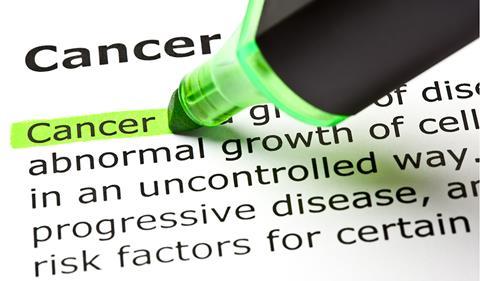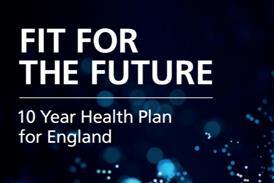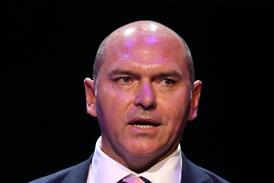An improved cancer dashboard provides the NHS with insight to become better at preventing cancer, writes Maisie Borrows

This month, the prime minister announced ambitious plans to improve cancer outcomes. A third of people in England will now develop cancer in their lifetime yet survival rates still desperately lag behind other Organisation for Economic Co-operation and Development countries.
Whilst the government has committed to improving early detection of the disease, Reform research published today finds that an effective use of data should underpin any cancer care reforms.
One of the NHS’s greatest strengths is its comprehensive datasets from cradle to grave. Collecting and analysing this data intelligently provides insight that can significantly advance understanding and management of cancer. If the NHS is to improve survival rates, it should use data at every stage of the treatment pathway to make better care decisions.
There is no shortage of data on cancer. GPs, hospitals, Public Health England, cancer alliances, cancer charities and pharmaceutical companies all have multiple datasets collecting information on diagnosis, treatment, outcomes and patient experience.
As Reform research has found, the abundance of datasets has created a confusing landscape and some information on patients is missing, making it difficult for clinicians to see the impact of care on outcomes.
For insight to drive improvements, the NHS needs to create a single point of access to all cancer data.
The cancer dashboard, an online interface that should provide a comprehensive snapshot of all cancer related information, is the perfect opportunity to do this. Going forward, the dashboard should be extended to become a complete, easy to use summary of the state of cancer in England.
The improved cancer dashboard
The report recommends the dashboard improves the completeness of data it collects by including datasets currently missing, such as treatment. Dependent on patient consent and a secure data storage system, it could also link to genetic information. This could make the most of advancements in DNA sequencing from the 100,000 Genome Project.
Given the different stages of treatment, it is crucial that data is shared effectively and in a timely manner, so care is integrated
Insight could be strengthened by incorporating the explosion of healthcare data generated from wearables and apps. These track vital signs, such as heart rate, blood glucose and blood pressure, and their popularity for managing complex conditions is increasing. Linking to this data would allow for a much fuller understanding of quality of life experienced during cancer treatment.
This improved dashboard could be modelled on international best practice like the National Prostrate Cancer Register in Sweden. Insight from this registry has been linked to improvements in clinical care, such as reducing the number of men undergoing unnecessary bone scans from 45 per cent in 1998 to 3 per cent in 2008.
This dashboard will be most useful when data sharing is improved. Greater Manchester is a good example of a local area taking initiative to overcome this challenge. They have launched a software system that allows for the secure exchange of patient electronic information across primary, secondary and community care.
Given the different stages of treatment, it is crucial that data is shared effectively and in a timely manner, so care is integrated. A cancer patient might have their disease diagnosed at their GP, their treatment at a specialist hospital and rehabilitation in the community.
Data driven change
An improved cancer dashboard provides the NHS with insight to become better at preventing cancer. Almost 40 per cent of all cancer cases in England are caused by preventable factors such as obesity and smoking.
GPs can use insight on lifestyle and genetics to help those identified as at risk make healthier lifestyle choices. The report supports the use of social prescribing, so a GP could advise someone to change their diet or try out an exercise class.
With smarter use of data, the prime minister has a better chance to make good on her cancer promise
Supporting the prime minister’s aim of earlier detection, improved insight from the dashboard will mean the NHS can encourage earlier screening. Earlier diagnosis of cancer is vital as it means patients are more likely to be cured.
Breast cancer patients have a near 100 per cent chance of five year survival if cancer is diagnosed at the earliest stage of development versus 30 per cent at the latest. Combining better data with artificial intelligence could improve screening accuracy and help the workforce become more efficient in meeting growing demand.
Linking the dashboard to genetic information would encourage a far greater use of personalised medicine. Unlike blockbuster treatments which are typically 30 to 60 per cent effective, personalised medicine is targeted at the genetic profile of a patient’s tumour making it more effective.
Much of this new medicine is in pill form, meaning it can be administered conveniently “closer to home” in chemo buses or local pharmacies.
Cancer touches the lives of everyone in some way, yet outcomes are not where they should be. Given this, it is right that more is being done to improve survival rates. With smarter use of data, the prime minister has a better chance to make good on her cancer promise.































No comments yet